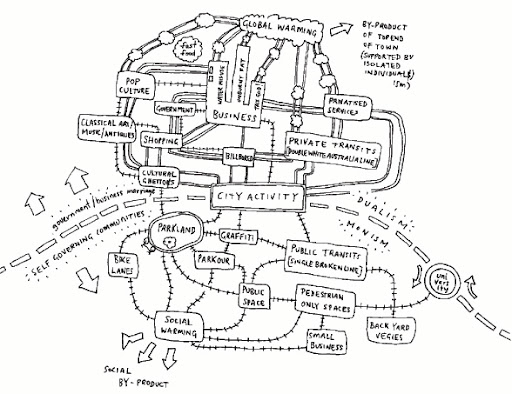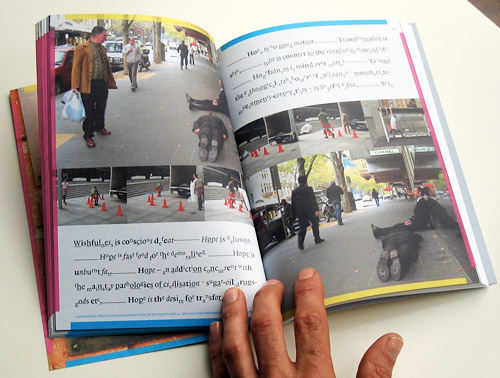
Uncle Max Harrison lights the fire at the opening ceremony of the Two Fires festival in Braidwood that took place over the weekend. Uncle Max is an elder of the Yuin people, who are the traditional people of the area. Other highlights included a wide ranging discussion concerning the work of Val Plumwood and Judith Wright, exchanging our presentations on "social warming" for hearty response, as well as hanging out with friends.
One thing that struck me while there concerned the design of the Aboriginal flag. Designed by Harold Thomas, a Luritja man from Central Australia, it has an immensely clear symbolism relating to land. And here I would suggest that Aboriginal culture participates in how it represents itself. In contrast the Australian flag is both skywards (Southern Cross) and across the seas (Union Jack), with no clear symbolic relation to land. Here, I would suggest, that Euro-Australian culture participates in how it represents itself. However a dislocated relationship to land is more broadly a corollary of industrial civilisation and is not only prejudiced to young colonies like Australia. In my paper for our Social Warming panel I posited this:
Perhaps why we know so much less about the trillions of microbes in the soil below our feet than we do about the stars and solar systems above our heads is because the "civilised world" is obsessed with transcendence, grandeur, spectacle and escape. And it seems apparent that art and literature are specifically implicated in this skywards obsession, which also concerns the cult of celebrity – a culture of anxiety and hypermediation directly related to food disorders and substance abuse.











